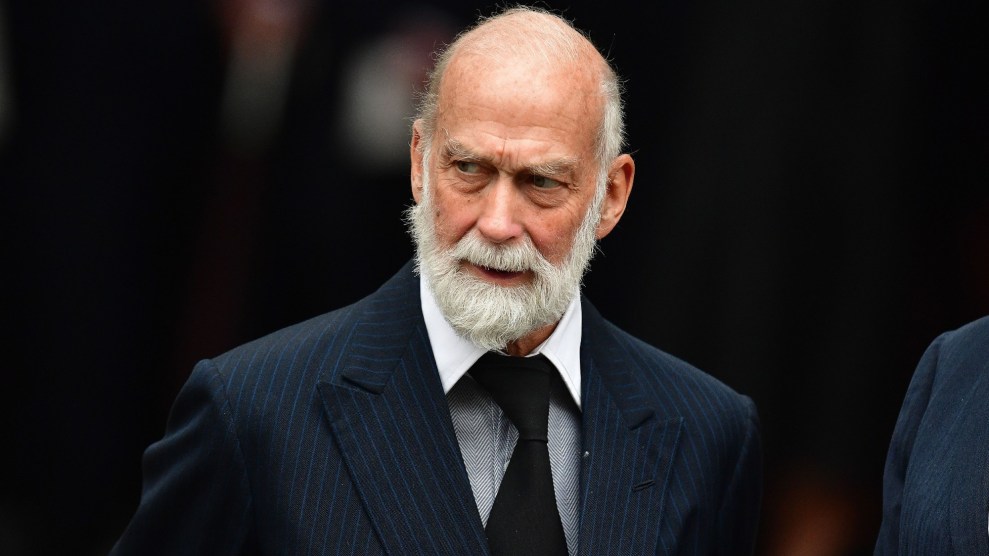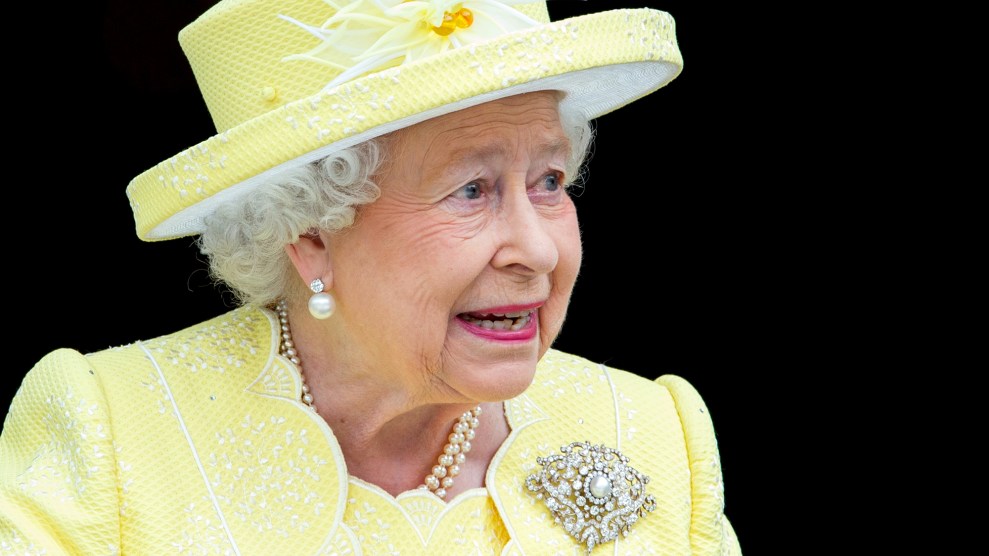
Prince Michael of Kent.Dominic Lipinski/PA Wire via ZUMA Pres
Queen Elizabeth II’s cousin, Prince Michael of Kent, was willing to help supposed executives of a South Korean gold company make “confidential” contact with Russian President Vladimir Putin—for about $14,000 a day—according to a wild report by two British media outlets published on Sunday.
In a Zoom meeting, Prince Michael also reportedly offered to deliver a recorded speech endorsing the South Korean company with Kensington Palace, where he resides, as a backdrop—for the princely sum of $200,000.
But the company, called the House of Haedong, was fake, and the apparent executives were undercover reporters working for the Sunday Times and Channel 4.
“If he is representing the House of Haedong, he could mention that to Putin and Putin would find the right person who is interested in South Korea or interested in gold,” the prince’s longtime business partner, Simon Issacs, also known as the “Marquess of Reading,” told the undercover reporters. “It just opens the door, you know, which is so helpful.” Issacs reportedly said.
Issacs reportedly told the fake investors that Prince Michael was “Her Majesty’s unofficial ambassador to Russia.” (He’s not.)
Now, in the latest embarrassment for Britain’s royals, the opposition Labour Party is calling for the alleged access-peddling prince to be stripped of an honorary position within Britain’s army.
Meanwhile, his representatives insist their own earlier claims the prince had special access to Putin were fiction aimed at extracting payments. Prince Michael “has no special relationship with President Putin” and the two men last met in 2003, his office said in a statement released after the investigative report was published. The 78-year-old prince does not receive payments from the Crown and “earns his own living through a consultancy company that he has run for over 40 years,” his office said.
“I made a mistake and over-promised and for that I am truly regretful,” Issacs, said. “I wasn’t at my peak as I was recovering from a kidney transplant.”
It’s not the first time a royal has been embroiled in an access-peddling sting. Keen royal-watchers will recall when the now-defunct News of the World tabloid secretly recorded the Duchess of York, Sarah Ferguson, brokering access to her ex-husband Prince Andrew, in 2010. She, too, promised to “open doors”—but for a lot more money.












